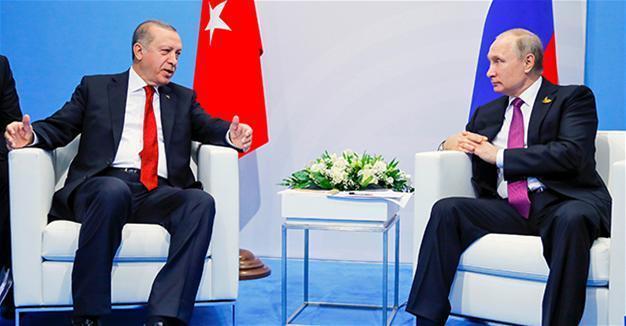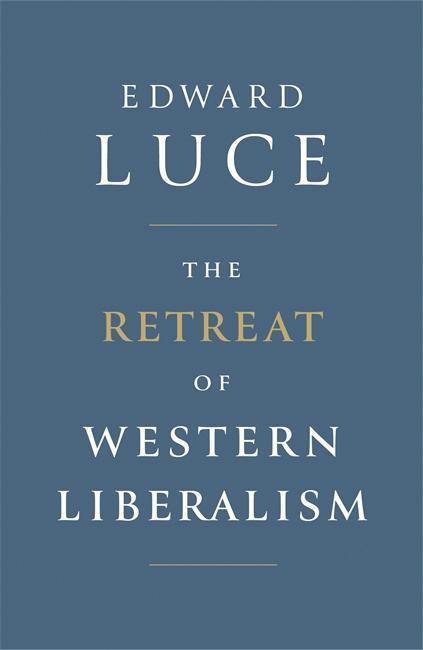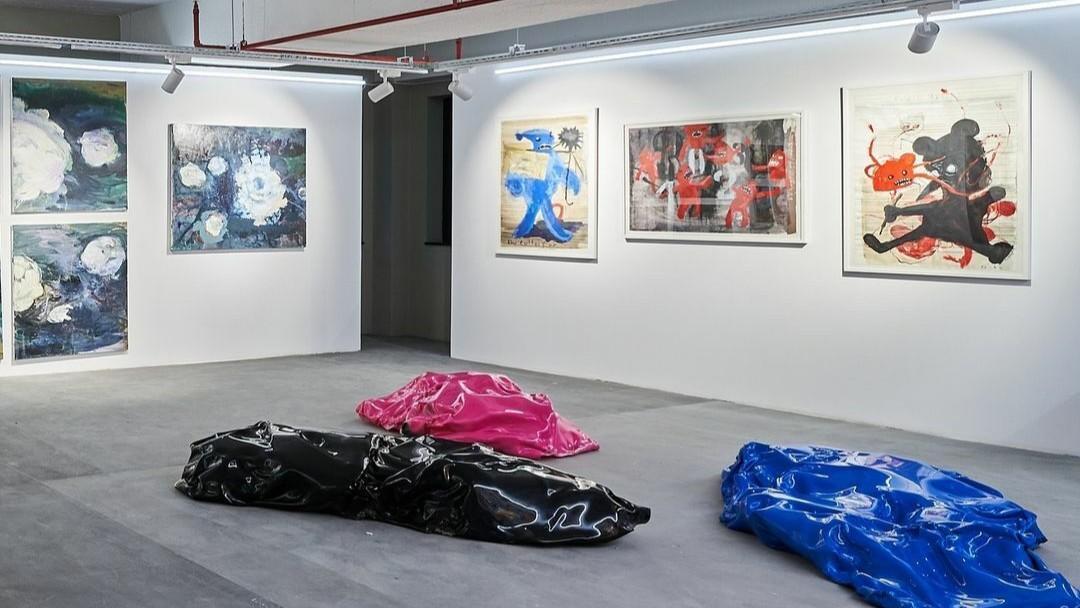The retreat of Western liberalism
William Armstrong - william.armstrong@hdn.com.tr

Russian President Vladimir Putin and Turkish President Recep Tayyip Erdogan meet at the G-20 summit in Hamburg in July 2017.
‘The Retreat of Western Liberalism’ by Edward Luce (Little Brown, 234 pages, £16)In recent years and months there has been much talk about the crisis of liberalism. Turkey is among the poster boys of an apparent democratic recession. The election of Donald Trump in the U.S., the struggles of the EU, the collapse of belief in the benefits of globalization, and lingering effects of the global financial crisis have also shaken confidence. Core beliefs that many people held about the world just a decade ago seem to have collapsed.
 It all marks a sharp turn. Little over 20 years ago, Western democracy appeared triumphant at the end of the Cold War. Back then, as Edward Luce writes in this short but stimulating book, there was a widespread optimism that Europe would unify and democracies would take the place of the Warsaw Pact. Autocracy and nationalism were dying: “Borders were opening up. Global horizons beckoned. A unipolar world was dawning. At a stroke, and without a shot being fired, our generation was staging the funeral rites for the twin scourges of Western modernity, communism and fascism.”
It all marks a sharp turn. Little over 20 years ago, Western democracy appeared triumphant at the end of the Cold War. Back then, as Edward Luce writes in this short but stimulating book, there was a widespread optimism that Europe would unify and democracies would take the place of the Warsaw Pact. Autocracy and nationalism were dying: “Borders were opening up. Global horizons beckoned. A unipolar world was dawning. At a stroke, and without a shot being fired, our generation was staging the funeral rites for the twin scourges of Western modernity, communism and fascism.” Luce is a U.S. political commentator at the Financial Times and previously served as speechwriter for Lawrence Summers as Treasury Secretary in the Bill Clinton administration. Back in the 1990s it was high noon of the Washington Consensus, the opposite of today’s pessimism. “Looking back, I am astonished at that era’s unshakable self-confidence,” Luce admits. Today, “there is no longer any talk of the inevitability of democracy, or the U.S.-led global order ... History is back and nothing is inevitable.” Western liberal democracy is not yet dead, he writes, “but it is far closer to the collapse than we may wish to believe. It is facing its gravest challenge since the Second World War.”
The book is slim but it takes a broad view, seeing the examples of Trump and Brexit as symptoms rather than causes of disarray. Examining those causes, Luce refers to the famous “Elephant Chart” of economist Branko Milanovic, sometimes described as “the world’s most important graph.” The chart shows how the gains of globalization have almost entirely gone to rich people in the developed world and rising middle classes in China and other developing countries, while the middle and working classes in developed countries have languished. Some describe the graph as the single key explanation for the rise of anti-establishment in the West populism, though there has also been plenty of pushback against this thinking that Luce omits to mention. It is also worth noting that the major cause of the “elephant effect” – the rise in the working-age share of the global population – is thought to have peaked in 2012 and is now declining.
Related to all this, Luce refers to the “great convergence” described by economist Richard Baldwin, showing how the past few decades have seen a monumental rebalancing of global growth, in which “the rest” have made astonishing gains on the developed “West.” The emerging middle class, writes Luce, “has gone from virtually nowhere to supplant the established Western middle class as the engine of global growth. Since 1970, Asia’s per-capita incomes have increased fivefold. Even in Africa ... incomes have almost doubled. The West’s median income, meanwhile, has barely shifted in the last half-century.”
This economic rebalancing will have political ramifications. “Many of the great questions facing humanity will be answered largely in India, China and Africa – not in the West,” writes Luce. And much of this “rest of the world,” he suggests, has a profoundly different view of history from the liberal West: “Humankind’s moral progress is a question that can never be settled. History does not end. It is a timeless repetition of human folly and correction.” This view is not just confined to Caracas, Moscow, Ankara, Budapest and Warsaw - it undergirds the view of Western discontents of right and left as well. “Whether the Western way of life, and our liberal democratic systems, can survive this dramatic shift of global power is the question of this book,” writes Luce.
Luce wisely focuses much of his attention on the U.S.-China relationship that will shape the world in the coming decades. He stresses the importance of Taiwan as a prime contender to be the fuse that lights a violent conflagration in the South China Sea. Luce summarizes the “Thucydides trap,” which has in recent months been fixating many in Washington. The idea, named after the Greek historian who chronicled Sparta’s response to the rise of Athens, considers how the established power reacts to the rise of a potential challenger. A 2012 Harvard study examining 15 such instances since 1500 found that in 11 cases the trap had culminated in war. This is particularly alarming considering the oft-cited parallels between today’s world and the situation just before the First World War.
Surveying all this uncertainty, Luce calls on policymakers to make a grand compromise in order to salvage what we have. This includes “abandoning the drive to deep globalization” that he sees as being responsible for so many of the problems provoking populism. He instead promotes what economist Dani Rodrik calls “thin globalization,” in which a compromise is made trading some global integration for more nation state-based decision-making.
At the moment, however, Luce warns that “we are on a menacing trajectory brought about by ignorance of our history, indifference towards society’s losers and complacency about the strength of our democracy.” No amount of empirical proof that the world has never been better for the average person is likely change the mood, (and it would probably not be good if everyone started believing so). As a lucid guide and exemplar of that mood, "The Decline of Western Liberalism" is an eloquent book.
* Follow the Turkey Book Talk podcast via iTunes here, Stitcher here, Podbean here, or Facebook here, or Twitter here.










